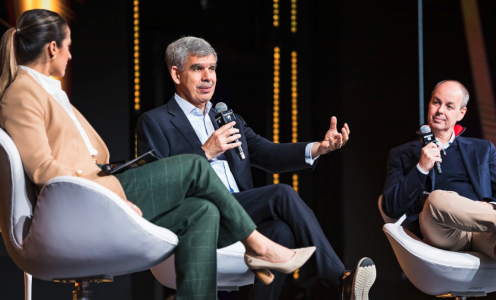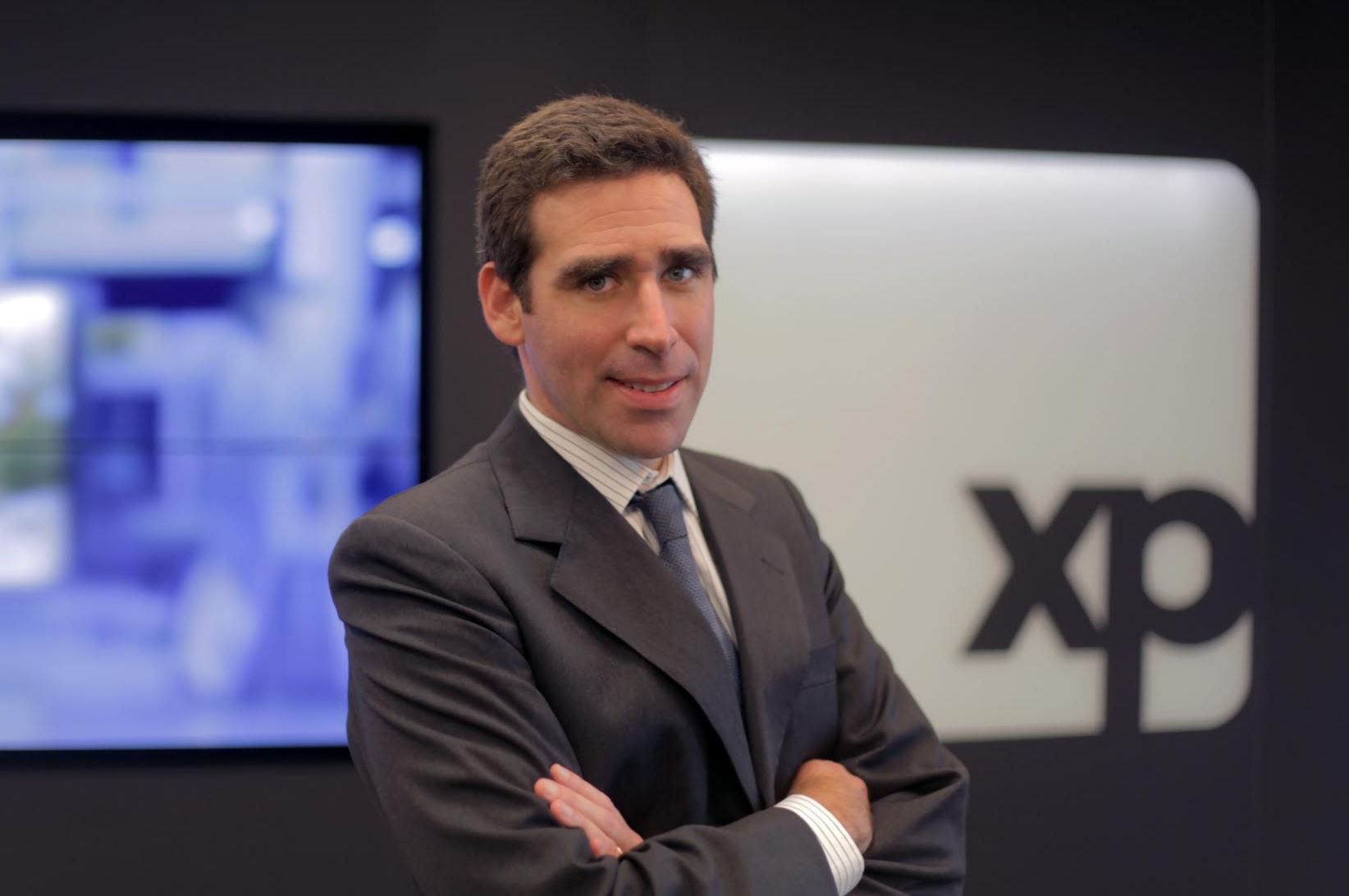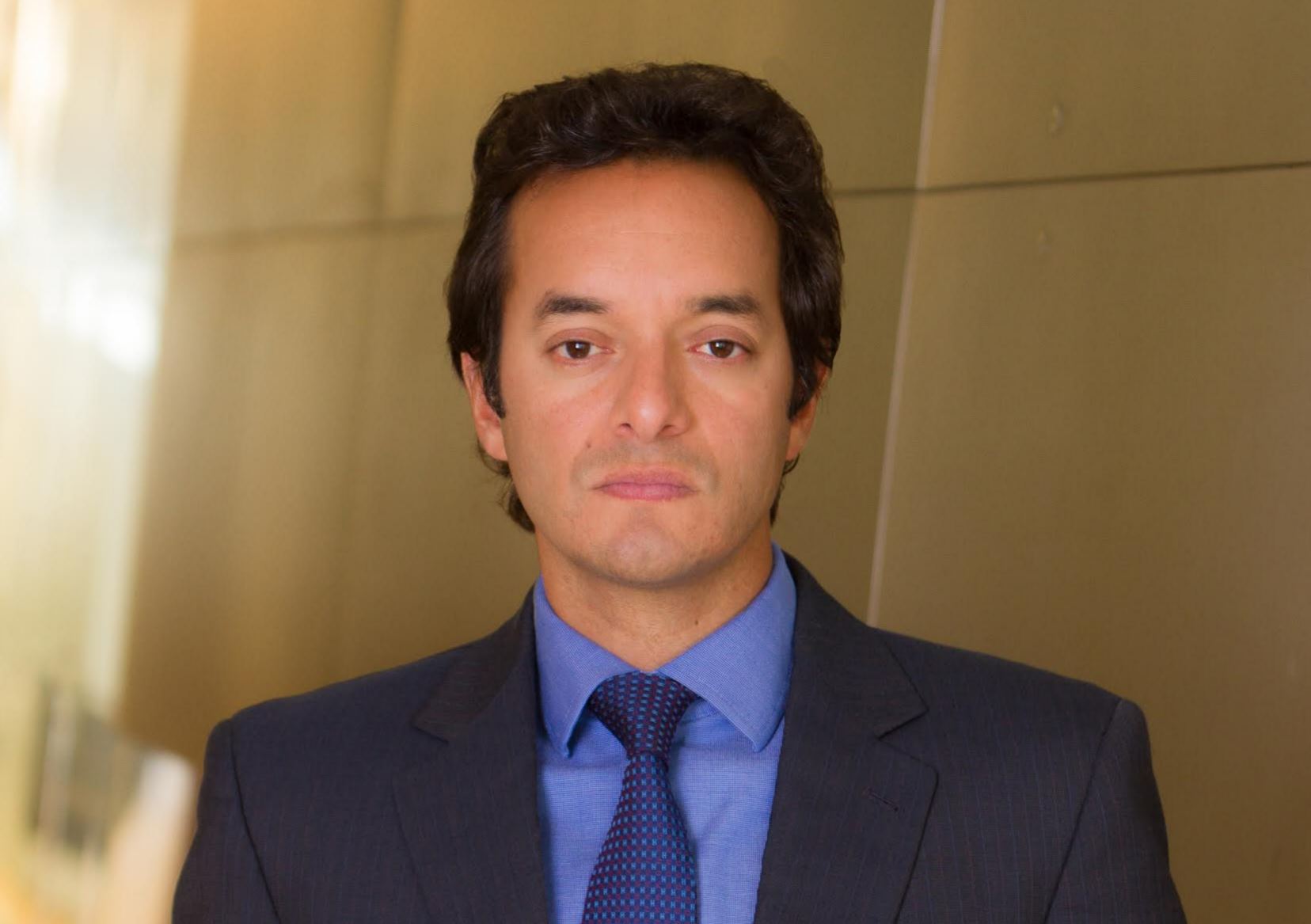The largest investment conference in the world was held in São Paulo without much international attention, with Brazilians as the protagonists of their own achievement. More than 50,000 people and 250 exhibitors participated on August 30 and 31 in XP Expert, an event that showcases both quantity and quality, culminating in a showdown of experts: Alberto Bernal and Mohamed El-Erian.
The main peculiarity of XP Expert is that it should be unmissable, but the world doesn’t seem to know it, and even the Brazilians themselves don’t seem to care much. While XP’s domestic market is enough to amass a trillion reais in assets under management ($0.18 trillion), the scale of the proposal from both local and international asset managers is overwhelming, as is the event’s openness to global investment analysis and guest speakers.
The Inevitable Recession vs. A World with Five Years of Inflation
Alberto Bernal, Chief Strategist at XP Investments, strongly defends his position, kicking off his presentations with bold statements: “The pandemic didn’t change anything from the market’s perspective,” and we will return to low interest rates because the recession is already starting to show signs in the United States.
In the U.S., pandemic savings-driven consumption is depleting, job growth is slowing, and the statistics are lagging, hiding a disinflationary process that is greater than what is publicly reported.
For Bernal, a crisis or recession in the U.S. is inevitable. However, he argues that “it will be a different kind of recession, where families will still go out to eat but won’t order dessert to avoid spending too much.”
He also predicts that Donald Trump will win the next U.S. elections, favoring investment in small-cap companies. When asked if Trump would be inflationary, Bernal disagrees, saying that the Republican’s promise to reindustrialize the U.S. won’t be realized, nor will the retreat of globalization.
Just hours after Bernal’s talk, Mohamed El-Erian, Chief Economic Advisor at Allianz, presented a starkly different market vision. According to El-Erian, more inflation is expected over the next five years “because we live in a fragmented world.”
COVID-19 changed everything, creating a global consensus on the need for regulation and reindustrialization—both inherently inflationary processes.
El-Erian sees major transformations ahead in areas like life sciences, the environment, and technology: “The only way out for the world is to increase productivity and growth,” and improve wealth distribution.
“Everything is moving very quickly, and the proof is that when you ask tech leaders what the world will look like in the coming years, they admit they don’t know,” El-Erian added.
El-Erian didn’t comment on the upcoming elections but warned that if wealth isn’t properly distributed, frustration and anger will rise, undermining democracy through negative voting.
All Against the Fed, as If It Were So Simple…
Bernal and El-Erian shared one common point: both criticized the Federal Reserve, though for entirely different reasons.
Bernal believes the Fed is lagging in lowering interest rates, noting that there is too much liquidity in the market.
El-Erian, on the other hand, thinks the Fed’s biggest recent mistake was labeling inflation as “transitory.” He argues that we have inherited a market overly focused on monetary policy, a result of the 2008 crisis and massive central bank intervention.
Now, markets want governments to intervene less, which will only be possible through significant transformations. El-Erian doesn’t foresee a crisis or recession but warns of “damage” if growth fails to offset the enormous fiscal deficits of governments.
How to Invest?
Bernal, in his bold presentation, ventured to provide specific investment recommendations. He advised extending fixed-income durations, looking at low-coupon bonds—“the Microsofts or Googles”—and predicting they would yield rewards in a few years.
El-Erian took a more general approach to asset allocation, emphasizing that future liquidity will be more expensive. He posed two key questions for any investor: How resilient is my portfolio? And how is the world changing? Keeping an open mind will be crucial.
In the coming months and years, we’ll see whether these analysts’ predictions hold true. In one of the booths, a life-sized photo of someone who was always certain of his bets stood tall. That person had just turned 94 during XP Expert: Warren Buffet, with his famous quote, “Rule number 1: Never lose money. Rule number 2: Never forget rule number 1.”



 By Fórmate a Fondo
By Fórmate a Fondo
